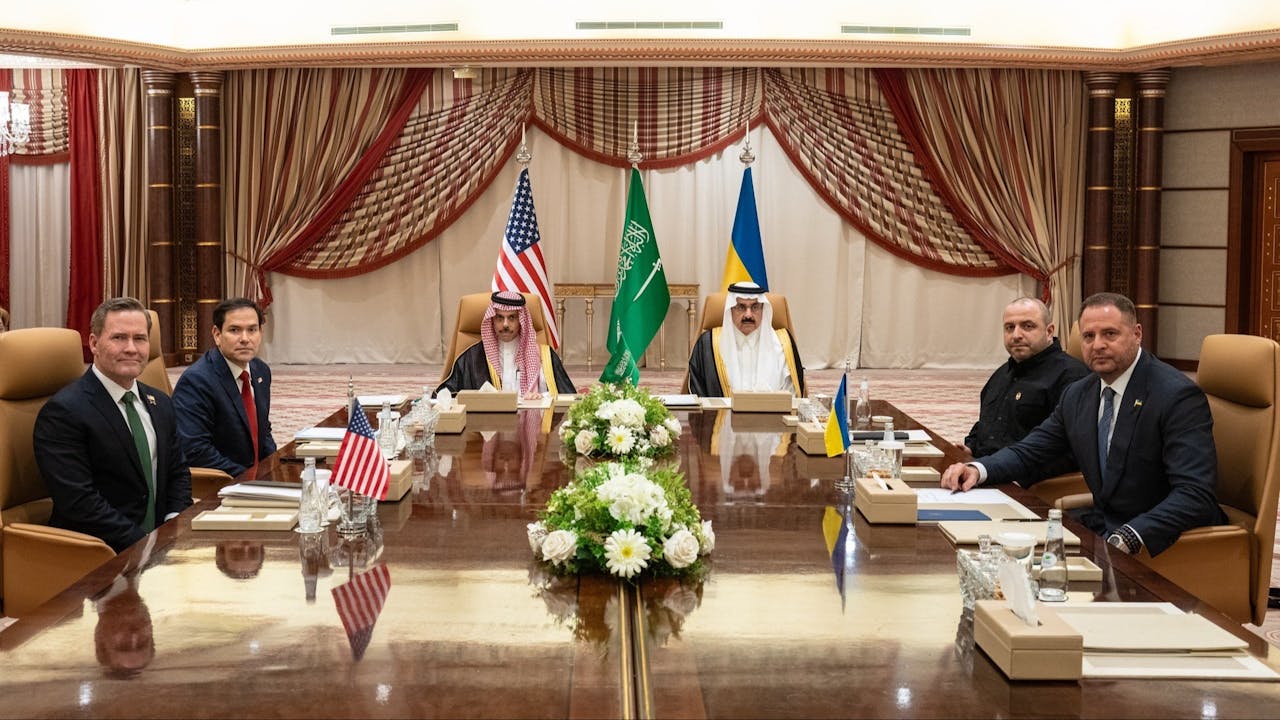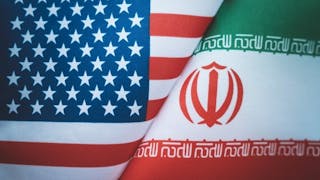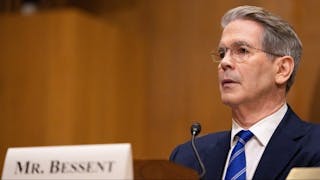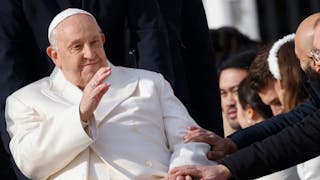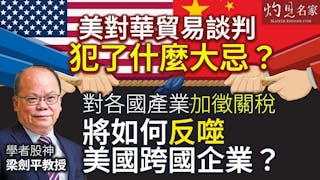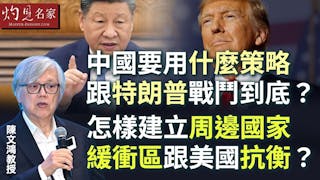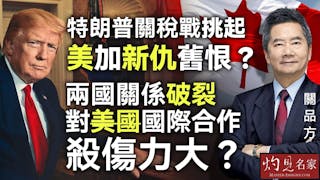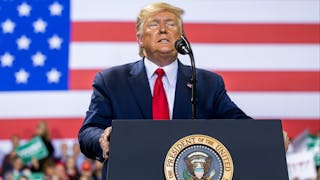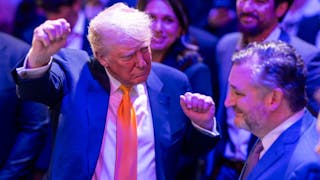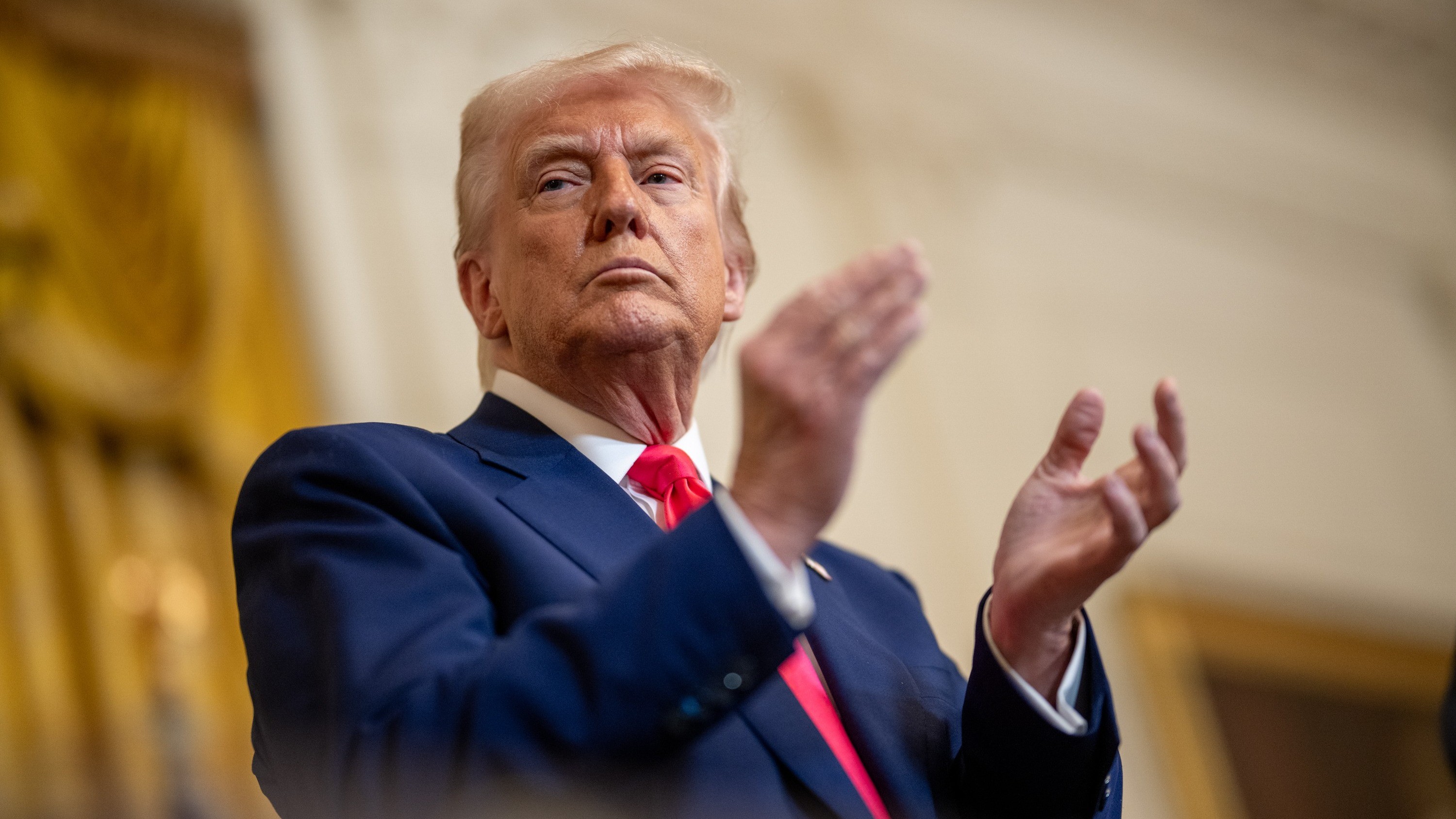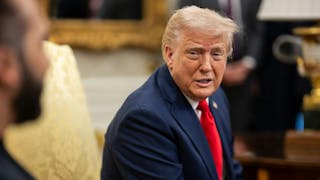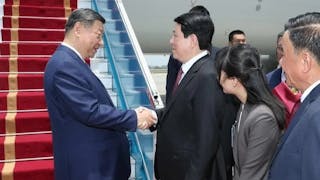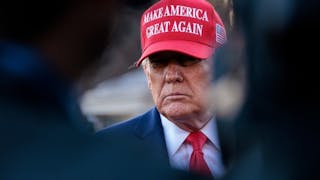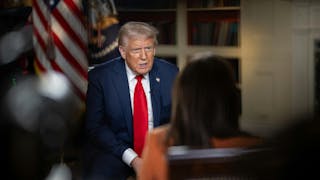自從澤連斯基於2月底與美國總統特朗普在橢圓辦公室不歡而散後,美國一直試圖為促進俄烏停火斡旋,以挽救自己的公關災難,但還有一些難題必須解決,包括美國在調停雙方衝突上對俄羅斯採取的綏靖政策能否長期發揮真正的作用。
2025年3月11日,美國和烏克蘭政府的代表在沙特阿拉伯會晤後發表聯合聲明。聲明稱,雙方「為恢復烏克蘭持久和平採取了重要步驟」。此外,兩國代表也稱讚烏克蘭人民的「勇敢」。
烏克蘭代表團重申其「對特朗普總統、美國國會和美國人民表示強烈感謝,感謝他們在和平方面取得了有意義的進展」。烏方並稱「準備接受美國的建議,即時實施為期30天的臨時停火,經雙方同意可以延長停火期限,但須得到俄方的接受和同時執行。」
烏克蘭和美國代表團也討論了人道主義援助的重要、交換戰俘的可能、釋放被拘留的平民和遣返「強行轉移的兒童」。
雙方隨即任命了談判小組成員繼續討論,美方稱致力於與俄羅斯討論具體方案。烏克蘭代表則堅稱「歐洲盟友應參與和平進程」,這意味着如果美國更願意與俄羅斯直接談判,澤連斯基及其顧問團明智的做法是讓歐盟國家參與協商進程。
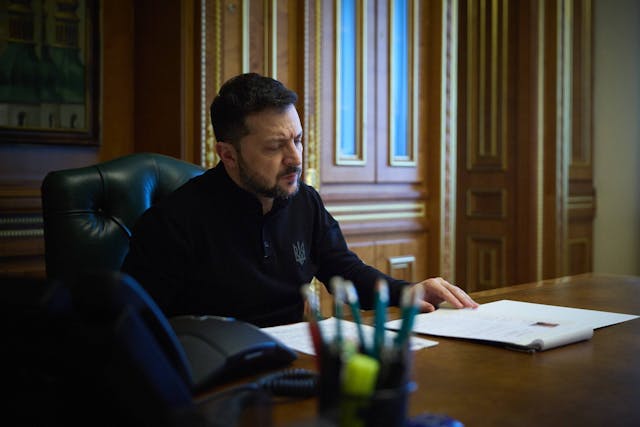
歐洲擔心美對俄採取綏靖政策
這一表態也安撫了一些歐盟國家,尤其是法國、德國、波蘭和波羅的海國家的擔憂,原本這些國家非常擔心美國突然對俄羅斯採取綏靖政策後,俄羅斯會否轉而入侵其他歐洲領土,以恢復大俄羅斯或前蘇聯的舊邊界。
從批判的角度來看,美國在斡旋烏克蘭戰爭時,不能優先考慮礦產資源協議,因為此舉不僅損害美國的全球領導形象,還會強化人們普遍認為美國霸權實際是經濟帝國主義,利用烏克蘭戰爭來製造人類苦難。
3月12日,美國國務卿魯比奧表示,美國不會公開與烏克蘭進行的外交談判,但他補充,烏克蘭關注囚犯交換、兒童回歸和長期安全。這些言論暗示,澤連斯基及其顧問可能願意在後期向俄羅斯作出領土讓步,但停火的前提條件包括獲得人道援助、交換戰俘和遣返兒童。
美國主導談判 不讓中巴介入
特朗普顯然想向世界證明,只有他和美國才能透過在俄烏之間直接斡旋來解決烏克蘭危機,而不是讓中國和巴西等第三方充當中間人的角色。
3月14日,俄羅斯總統普京會見美國特使威特科夫,討論30天停火提議的細節。普京表示,他原則上支持停戰,但在達成任何協議之前,若干細節需要進一步澄清。
為增強自身談判地位,俄軍在北韓軍隊的支持下,在將烏克蘭軍隊趕出庫爾斯克取得了突破。該地區原本是烏克蘭軍隊攻擊俄羅斯軍隊、增強談判實力的戰略軍事目標。現在,隨着俄羅斯反攻勢頭增強,烏克蘭討價還價的籌碼明顯被削弱。
從國家安全利益角度,俄羅斯堅決阻止烏克蘭加入北約。此外,俄羅斯尋求削弱烏克蘭並將其重新建立為緩衝國,將東部領土併入俄羅斯。俄方也反對任何北約部隊在這個擬議的新緩衝國中充當維和部隊成員,因為從軍事角度,實力薄弱的烏克蘭將符合俄羅斯的戰略利益。
然而,從法國、波蘭和波羅的海國家等歐洲國家的角度來看,軍事威懾對於遏制俄羅斯的領土野心和防止其恢復前蘇聯時代邊界至關重要。因此,停火後任何和平協議的細節都將引起很大爭議,至少需要一些歐洲國家的參與。澤連斯基和烏克蘭政府敏銳地意識到歐洲的這些擔憂,這是為何他們希望在停火談判初期讓歐盟加入協商進程,因為歐洲的參與最終有助於維護烏克蘭的立場。
澤連斯基和特朗普2月28日的會晤強調,一旦美俄開展談判,烏克蘭將被迫放棄其東部領土,但澤連斯基似乎並不關心自己的選舉前景。儘管俄羅斯更喜歡一位親俄的烏克蘭總統,但澤連斯基在2月28日與特朗普會面期間的民族主義立場似乎增強了他的國內支持。
3月13日,波蘭總統杜達呼籲美國在波蘭部署核武器,以威懾俄羅斯,突顯北約對莫斯科領土野心日益擔憂。
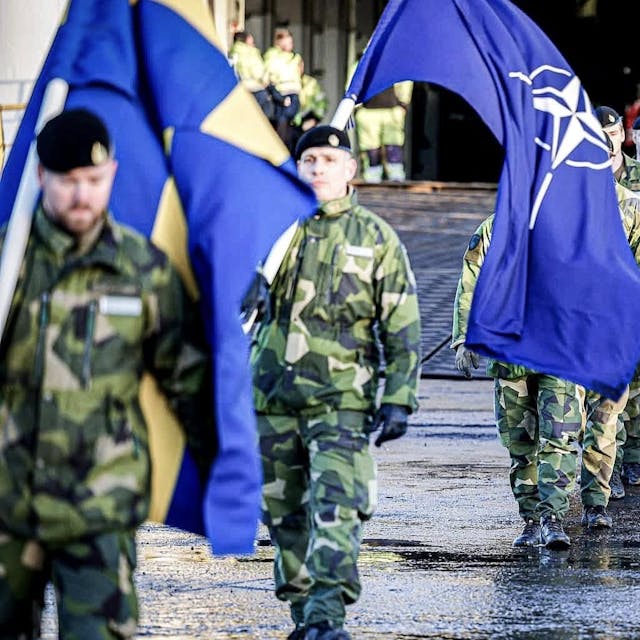
法國要擴大核威懾保護歐盟
波蘭總理圖斯克更指出,波蘭對法國總統馬克龍提出要擴大法國核威懾力量以保護歐盟國家免受俄羅斯潛在軍事威脅的提議感興趣。俄方駁斥了這個想法,稱其「極具對抗性」。
美國國家安全顧問必須牢記美國對前蘇聯和俄羅斯的傳統核威懾戰略,該戰略一直持續到特朗普於2025年1月下旬就職總統為止。特朗普威脅意收購格陵蘭島,並對加拿大和墨西哥的進口產品徵收關稅,這讓美歐關係變得更加緊張。特朗普政策的反覆無常,使美國的全球領導地位陷入危機,引發了人們的合理擔憂,即他是否正在以犧牲美國的國際地位為代價,逐步走向對俄羅斯的綏靖戰略。
特朗普揚言,如果俄羅斯拒絕停火,美國將「對俄羅斯經濟採取毀滅性措施」。事實上,經濟制裁有其局限,因為目標國家往往轉向其他友好國家來維持其經濟。美國決策者必須充分理解純粹交易的外交方式有何限制。
波蘭最近呼籲實行核威懾是對此類擔憂的自然反應,但也刺激了俄羅斯的國家安全心理。從俄羅斯的角度來看,理想的結果是在烏克蘭選出親俄的新總統,並且在其實力被削弱下成為脆弱的緩衝國。然而,這種情況遭到烏克蘭和幾個歐洲國家的強烈反對。如果美國不考慮其前歐洲盟友的國家安全優先事項,其對俄羅斯不斷變化的態度將繼續引起整個歐洲的警惕。
The geopolitics of US-Russian negotiations over Ukraine: Towards appeasement?
After the unhappy meeting between Volodymyr Zelensky and Donald Trump at the Oval Office in late February, the US has been attempting to rescue its own public relations disaster by triggering negotiations with Ukraine and continuing its secret discussions with Russia. Although the US, under Trump’s leadership, hopes for a ceasefire agreement to be reached between Ukraine and Russia through American mediation, there are serious questions that must be tackled, including whether US policy towards Russia over Ukraine is adopting an appeasement approach that can and will really work in the long run.
On 11 March 2025, the governments of the US and Ukraine issued a joint statement after their meeting in Saudi Arabia Arabia (see: Joint Statement on the United States-Ukraine Meeting in Jeddah – United States Department of State, March 11, 2025). It said that both sides took “important steps towards restoring durable peace for Ukraine.” Moreover, representatives of both countries praised the Ukrainian people for their “bravery.”
The Ukrainian delegation repeated Ukraine’s “strong gratitude to President Trump, the US Congress, and the people of the US for making possible meaningful progress towards peace.” Ukraine also expressed its “readiness to accept the US proposal to enact an immediate, interim 30-day ceasefire, which can be extended by mutual agreement of the parties, and which is subject to acceptance and concurrent implementation by the Russian Federation.”
In return for this Ukrainian position, which appeared to be an implicit “apology” from Zelensky to the Trump administration, the US will “communicate to Russia that Russian reciprocity is the key to achieving peace.” On the other hand, to make the EU countries and the “democratic” world perhaps less dissatisfied with how Trump and his Vice President, J. D. Vance, publicly “humiliated” Zelensky, the US administration asserted that it “will immediately lift the pause on intelligence sharing and resume security assistance to Ukraine.”
The delegations from Ukraine and the US also discussed the importance of humanitarian assistance, the possibility of the exchange of prisoners of war, the release of civilian detainees, and the return of “forcibly transferred children.”
The two sides also named their negotiating teams at once to continue discussions, while the US expressed its commitment to discussing specific proposals with Russia. The Ukrainian delegation insisted that “European partners shall be involved in the peace process,” implying that Zelensky and his advisers were wise to keep the EU countries involved in the process of consultation if the US prefers direct negotiations with Russia. This statement also calmed the concerns of some EU countries, especially France, Germany, Poland, and the Baltic states, which are very concerned about whether Russia, after any agreement with the US— which appeared to have suddenly adopted an appeasement policy towards Moscow— would perhaps turn to “invade” other European territories for the sake of restoring the old boundaries of “Greater Russia” or the former Soviet Union.
The joint statement issued by the US and Ukraine included a crucial point described in the previous paragraph, namely: “both countries’ presidents agreed to conclude as soon as possible a comprehensive agreement for developing Ukraine’s critical mineral resources to expand Ukraine’s economy and guarantee Ukraine’s long-term prosperity and security.”
From a critical perspective, the US cannot prioritise the mineral resources agreement in its mediation of the Ukraine war, as doing so would not only damage the image of US global leadership but also reinforce the widespread perception of US hegemony as a form of economic imperialism, exploiting the Ukraine war amid human suffering.
On 12 March, US Secretary of State Marco Rubio stated that the US is not going to conduct diplomacy and negotiations with Ukraine in public—a remark signalling a reversal of the US approach to dealing with Ukraine after the “disastrous” meeting between Trump, Vance, and Zelensky at the Oval Office. Rubio added that Ukraine is concerned about the exchange of prisoners, the return of children, and long-term security (see: Secretary of State Marco Rubio Remarks to Press – United States Department of State, March 12, 2025). These remarks implied that Zelensky and his advisers may be willing to make territorial concessions to Russia at a later stage, but their preconditions for a ceasefire include securing humanitarian aid, the exchange of prisoners, and the return of children.
Interestingly, these “preconditions” set out by Ukraine align with a peace proposal prepared by China and supported by Brazil. However, the Sino-Brazilian proposal, put forward in May 2024, was largely ignored by key stakeholders—particularly the US, which has been reluctant to acknowledge that elements of the March US-Ukrainian negotiations contained aspects of the 2024 Sino-Brazilian peace plan proposal (see: Brazil and China present joint proposal for peace negotiations with the participation of Russia and Ukraine — Planalto (www.gov.br). As a dominant president following his electoral victory, Donald Trump clearly wants to demonstrate to the world that only he and the US can resolve the Ukrainian crisis by directly mediating between Ukraine and Russia, rather than allowing third parties such as China and Brazil to act as intermediaries.
On 14 March, Russian President Vladimir Putin met with US envoy Steve Witkoff to discuss the details of the 30-day ceasefire proposal (Associated Press, 15 March 2025). Putin stated that he supported a truce in principle, but that the details of the proposal needed further clarification before any agreement could be reached.
To enhance its own bargaining position, the Russian military, with the support of the North Korean army, has achieved a breakthrough in driving Ukrainian troops out of the Kursk region. This area was originally a strategic military target for the Ukrainian army to attack Russian forces and strengthen Ukraine’s negotiating power. Now, with the Russian counteroffensive gaining momentum, Ukraine’s bargaining position has been significantly weakened.
On 14 March, Trump stated that thousands of Ukrainian troops were surrounded by the Russian military and that he had requested Putin to spare their lives. Putin replied that Russia would be willing to do so if the Ukrainian army surrendered in the Kursk region. Interestingly, Ukraine’s military headquarters denied that its forces had already been defeated. Given these conflicting claims, it would be prudent for the US to obtain accurate military intelligence on the situation in Kursk. Otherwise, US negotiators risk being “trapped” by their Russian counterparts, who are clearly using military advances as leverage to extract further concessions from Washington.
From the perspective of national security interests, Russia is determined to prevent Ukraine from joining NATO. Furthermore, Russia seeks to weaken Ukraine and re-establish it as a buffer state, with the eastern territories absorbed into Greater Russia. Moscow also opposes any NATO forces acting as peacekeepers in this proposed “new buffer state.” A militarily weak Ukraine would serve Russia’s strategic interests.
However, from the standpoint of European states such as France, Poland, and the Baltic nations, military deterrence is essential to curb Russia’s territorial ambitions and prevent the restoration of its former Soviet-era boundaries. Consequently, the details of any peace agreement following a ceasefire will be highly contentious, requiring the involvement of at least some European countries. Zelensky and his government are acutely aware of these European concerns, which is why they aim to bring the EU into the consultative process early in the ceasefire negotiations—hoping that European engagement will ultimately help safeguard Ukraine’s position.
From Ukraine’s national security perspective, reclaiming its eastern territories would be the ideal outcome. However, this is increasingly looking like an unrealistic goal, as Trump and his advisers appear to be pursuing an appeasement policy towards Russia. The 28 February meeting between Zelensky and Trump underscored the likelihood that Ukraine will be forced to cede its eastern territories once Washington and Moscow begin negotiations. Zelensky, however, seems unconcerned about his own electoral future should a presidential election take place. Although Russia would prefer a pro-Moscow Ukrainian president, Zelensky’s nationalist stance during the 28 February meeting with Trump appears to have bolstered his domestic support.
On 13 March, Polish President Andrzej Duda called on the US to deploy nuclear weapons to Poland as a deterrent against Russia, highlighting NATO’s growing concerns over Moscow’s territorial ambitions. Duda had made a similar appeal to former US President Joe Biden in 2022.
Polish Prime Minister Donald Tusk went even further, stating that Poland was interested in French President Emmanuel Macron’s proposal to extend France’s nuclear deterrent to protect EU countries from a potential Russian military threat. Moscow dismissed the idea as “extremely confrontational” (CBS News, 13 March 2025).
MOSCOW, March 21, 2023 (Xinhua) — Chinese President Xi Jinping and Russian President Vladimir Putin shake hands after jointly signing a Joint Statement of the People’s Republic of China and the Russian Federation on Deepening the Comprehensive Strategic Partnership of Coordination for the New Era. (Xinhua/Xie Huanchi)
US national security advisers must be mindful of the traditional US nuclear deterrence strategy against the former Soviet Union and Russia, which remained in place until Trump’s presidential inauguration in late January 2025. The implication of this longstanding US containment policy is that Washington must carefully consider how an appeasement approach towards Russia might give EU countries the impression that the US is abandoning them. Trump’s threats of 200 per cent tariffs on European wine, cognac, and other alcohol imports have already strained US-European relations—compounded by his administration’s interest in acquiring Greenland and the imposition of tariffs on imports from Canada and Mexico. The erratic nature of Trump’s policies has plunged US global leadership into crisis, raising legitimate concerns over whether he is edging towards an appeasement strategy with Russia at the expense of America’s international standing.
By waging trade wars against multiple nations, the US has already shifted from its traditional role as a proponent of liberal global trade to prioritising transactional business interests. It has adopted self-protective economic policies similar to those of developmental states like Taiwan, Japan, and South Korea in the 1970s and 1980s. In short, US foreign policy is undergoing a drastic transformation, which could accelerate its global decline in the coming years—at least under Trump’s leadership.
President Trump has claimed that if Russia refuses a ceasefire and a peace deal, the US will take “devastating measures against Russia’s economy.” In reality, economic sanctions have their limitations, as targeted countries often pivot towards other friendly states to sustain their economies. The constraints of a purely transactional approach to diplomacy must be fully understood by US policymakers.
In conclusion, the ongoing US-Russia negotiations over a ceasefire in the Russo-Ukrainian war reflect a dramatic U-turn in American foreign policy towards Russia. Some aspects of the proposed ceasefire agreement echo elements of the Sino-Brazilian peace proposal on Ukraine from May 2024. However, as a struggling superpower, the US has opted to act as the sole mediator in the conflict, despite an increasingly multipolar world order. While peace is widely welcomed, US negotiators must tread carefully to balance the national security interests of both Ukraine and Russia. Any overtly conciliatory approach towards Russia risks exacerbating security concerns among European nations that perceive Moscow as harbouring ambitions of restoring the former Soviet territories or constructing a new Greater Russia.
Poland’s recent calls for nuclear deterrence are a natural response to such concerns, but they also provoke Russia’s national security psyche. From Russia’s perspective, the ideal outcome would be a weakened Ukraine serving as a fragile buffer state, potentially under a newly elected pro-Moscow president. Yet, this scenario is strongly opposed by Ukraine and several European nations. If the US fails to consider the national security priorities of its former European allies, its evolving approach towards Russia will continue to raise alarm across Europe. Despite broad international support for a ceasefire and peace agreement between Ukraine and Russia, the ramifications of America’s shifting foreign policy remain a source of global uncertainty.
原刊於澳門新聞通訊社(MNA)網站,本社獲作者授權轉載。(原文按此)



